January 20, 2021
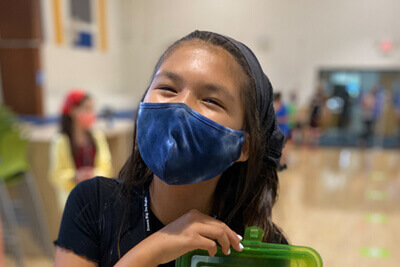 At Mounds Park Academy, we seek free-thinkers, free-spirits, risk-takers, right-makers, dreamers, and doers. There’s likely someone within your community who was made for Mounds Park Academy, someone whose mind calls for our type of education. Please consider inviting them to discover something remarkable at MPA’s final virtual admission preview of the school year on Sunday, January 31 at 2PM. Register here.
At Mounds Park Academy, we seek free-thinkers, free-spirits, risk-takers, right-makers, dreamers, and doers. There’s likely someone within your community who was made for Mounds Park Academy, someone whose mind calls for our type of education. Please consider inviting them to discover something remarkable at MPA’s final virtual admission preview of the school year on Sunday, January 31 at 2PM. Register here.
The most important way that new families come to our school is you, and reaching out to deliver a gentle nudge is the most effective way to recommend MPA. Sharing your love of MPA with those people is, by nature, a generous act of kindness—you are helping the prospective family find a wonderful school community and a second home. We hope that you’ll email an invitation to a colleague, nudge your neighbor, or share information with a family and friends. Click here to read about how the Rengstorf Family shard MPA with their friends!
Breakout Sessions at Preview
Bringing Amelia Earhart to the Makerspace
with Scott Wilson fourth grade teacher and Nicole Koen, Makerspace Coordinator
Mr. Wilson and Mrs. Koen will lead a short lesson on the story of Amelia Earhart and then use the principles of design thinking to create a flying machine that accomplishes challenge tasks like landing on a target, flying through a target, and maintaining flight for three seconds. Families are encouraged to watch the activity and learn about the overall process from the lesson, and then build their flying machine at a later time.
Keep It Up!
with Mr. Tim Sheehan, Lower School physical education teacher
Improve your volleying and striking skills during the Keep It Up session. You will learn how to properly toss, catch, volley and work through several challenges that are safe to do at home. You only need a balloon, or two socks rolled up in a ball to participate!
Break A Leg: Middle School Theater in Action
with Heather Mastel, Lower and Middle School drama teacher
At the foundation of theatre are three “actor tools” – your body, face, and voice! Join us for a low-risk intro to middle school theatre, as we put these tools to work. After a quick stretch, we will create frozen statues/tableaus and super-short scenes!
Is Math Made Up?
with Chris Peterson, Middle School Math Faculty
Middle School mathematics students often wonder how the math in their homework ever came about and why it is the way it is. In this session, learn how math is all around us as Mr. Peterson answers the important question, “Who made up math, anyways?” Discover how key concepts in Middle School math were first shared with the world and the history and genius behind them.
An Interdisciplinary Approach To American Studies
with Ms. Katie Murr and Ms. Sara Mohn, Upper School history and English teachers
Ms. Murr and Ms. Mohn will take students through a poem and images to explore the different identities of our nation. The poem and images will open up discussion for how our nation has defined itself across the years.
The Newtonian Physics of Rotor Design
with Marc Shapiro and Hannah Sullivan, Upper School science faculty members
Mr. Shapiro and Ms. Sullivan will lead participants through a lab activity demonstrating the active approach to Upper School science at MPA. Together, we will explore the properties of rotors, improve rotors design, and explore the scientific process. This activity is taken from the 9th grade physics curriculum and is part of our study of motion, falling objects, and Newton’s Laws. Participants will need paper, scissors, and either paperclips, a stapler, or Scotch tape.
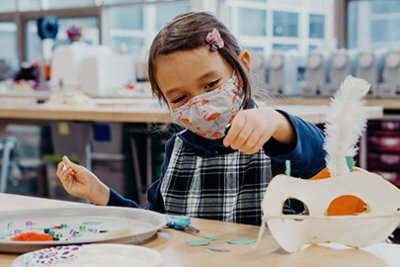 by Dr. Bill Hudson, Head of School
by Dr. Bill Hudson, Head of School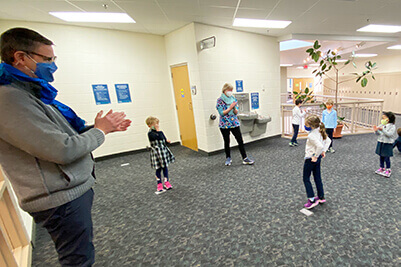 by Dr. Bill Hudson, Head of School
by Dr. Bill Hudson, Head of School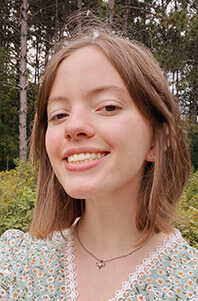
 What music do you listen to while you work?
What music do you listen to while you work?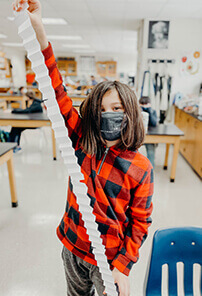 by Dr. Bill Hudson, head of school
by Dr. Bill Hudson, head of school by Dr. Bill Hudson, Head of School
by Dr. Bill Hudson, Head of School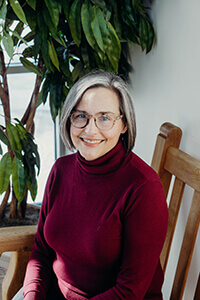 Lisa Pederson, MPA’s Director of College Counseling, has been named one of the twelve recipients from across the country of the
Lisa Pederson, MPA’s Director of College Counseling, has been named one of the twelve recipients from across the country of the 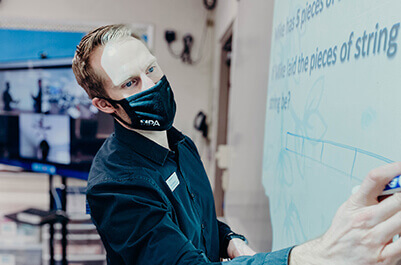 by Dr. Bill Hudson, Head of School
by Dr. Bill Hudson, Head of School At Mounds Park Academy, we seek free-thinkers, free-spirits, risk-takers, right-makers, dreamers, and doers. There’s likely someone within your community who was made for Mounds Park Academy, someone whose mind calls for our type of education. Please consider inviting them to discover something remarkable at MPA’s final virtual admission preview of the school year on Sunday, January 31 at 2PM.
At Mounds Park Academy, we seek free-thinkers, free-spirits, risk-takers, right-makers, dreamers, and doers. There’s likely someone within your community who was made for Mounds Park Academy, someone whose mind calls for our type of education. Please consider inviting them to discover something remarkable at MPA’s final virtual admission preview of the school year on Sunday, January 31 at 2PM. 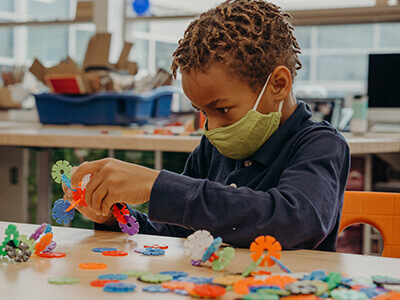 MPA’s Winter 2021 Virtual Admission Preview is almost upon us, and today, we are unveiling the six fantastic sample classes that prospective families will experience as part of this event! From adventure in the Makerspace to frozen tableaus to Newtonian Physics, discover what’s remarkable about an MPA education.
MPA’s Winter 2021 Virtual Admission Preview is almost upon us, and today, we are unveiling the six fantastic sample classes that prospective families will experience as part of this event! From adventure in the Makerspace to frozen tableaus to Newtonian Physics, discover what’s remarkable about an MPA education.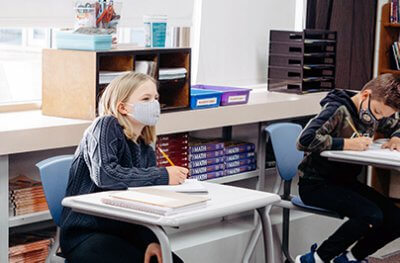 by Dr. Bill Hudson, Head of School
by Dr. Bill Hudson, Head of School